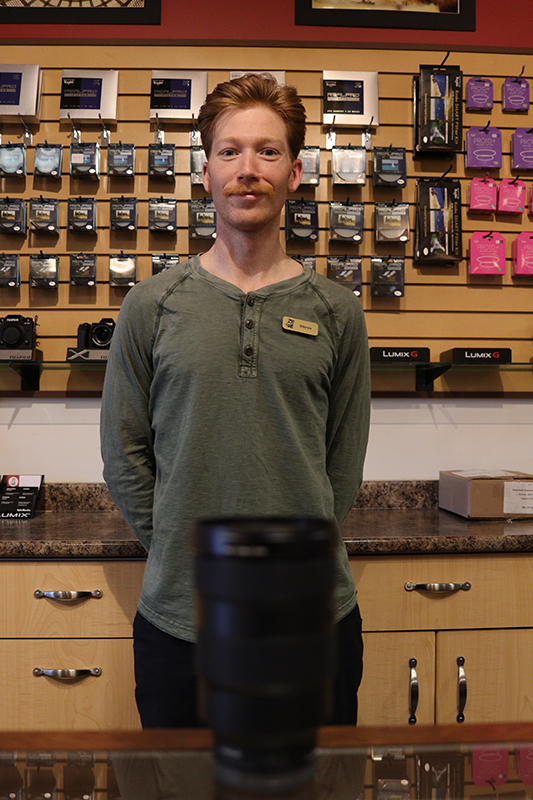Steven Keith, one of the camera experts at McBain Camera, poses behind a 150mm prime lense, similar to his beloved Hasselblad, his weapon of choice when shooting wildlife Dec. 8, 2021.
There seems to be two schools of thought when it comes to photography these days.
One: let the lens do all the work. Get a big telephoto zoom lens and just zoom in to get a subject framed properly.
Or two: use a prime or fixed focal length lens and move yourself to get the pictures you want.
Steven Keith an employee at McBain camera, falls into this latter category.
“The lens should be used based on how much compression you want in the shot, not where you want to be,” said Keith.
You see with a telephoto zoom lens, the more you zoom in the more compressed or smooshed, to use a scientific term, your subject matter becomes.
“You don’t want to just zoom in all the way across the street to get a photo of something, you should go and get exactly the kind of look that you want rather than make the lens do that work,” said Keith.
Keith’s go-to lens for shooting wildlife is a Hasselblad 150mm.
“I use that the most for my landscape shots and stuff like that,” said Keith.
Keith uses both digital and film cameras.
He likes the Hasselblad film camera because the lens is so accurate.
“It’s just kind of a slight telephoto lens, it gives a nice shallow depth of field on it if I really need it. It’s super sharp, it just kind of feels right for what I’m doing most of the time,” said Keith.
For the uninitiated Hasselblad is a camera company from Gothenburg Sweden that has manufactured cameras since the ‘40s and has been the camera supplier on most NASA space missions since the moon landing in 1969.
Keith’s lens is no longer manufactured but are often available on the used market for around $600 depending on condition.

